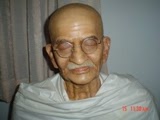 |
| Daily rhythm |
Once we are certain of what is it that we seek to find or believe there is a need to change, define our expectation and convert those expectations in the form of values that can be written down and then translated into every day actions. Firstly with everything we do in life we need to ask ourselves, why we are doing this, how does it benefit us and the people we love?
Don't hold back on positive appreciation.
Do something nice not just for the sake of doing it.
Help an elderly person lift or carry a parcel.
Clear the table after a meal if it's not your normal practice.
Answer to messages, calls and mail just in time.
Bring rhythm to our daily routine.
Refrain from a negative pointer.
Positive habit generates and promotes good will. One small step towards your positive habit can have a tremendous positive effect on our overall day. No matter what problems occur during the day, remind ourselves of how we started with a positive habit and nothing can upset our day otherwise we will be a dead duck.
 |
| I want to fix my habits |
In my office at APTECH (Business Consulting and Computer Education group) in the year 1994 I was receiving a heavy daily mail covering a wide variety of matters examinations, curriculum, student complaints, and business issues and so on. I was operating on the policy that every letter must gets an answer. Nonetheless I used to come to my office and find a formidable pile of letters and get dismayed. Visualizing the amount of labor of having to think out replies to those letters, my mind would internally start grumbling “Why do people write so many letters do they not have any other work, other than writing letters?”, but I learnt that the only way to effectively answer letters would be to answer them no sooner they arrive. If I keep it in the pending folder it would get old and then I would have to re-open all letters, to gain the back ground on the content and so it was very painful than answering them as they arrive. Similarly any activity not if I don’t done regularly it starts piling up till one day it looks like a night mare to even attempt the huge pile. That’s when our mind will prick saying we are incapable for our role and job, and eventually we may have to probably quit the job itself. So I therefore continued that habit of answering the email as it arrives at a fixed interval which helped me live peacefully.
Cultivation of a careful and consistent regular rhythm of positive habits is the key to becoming successful not the other way round.





